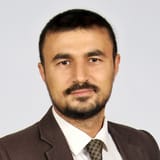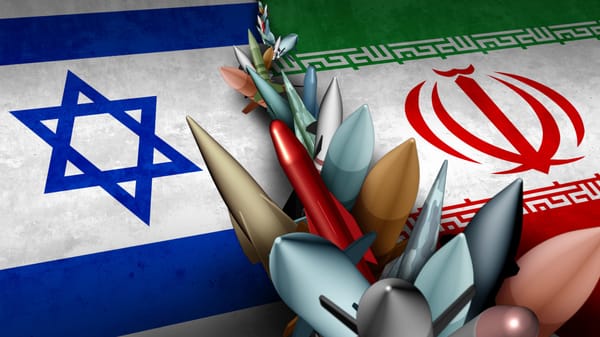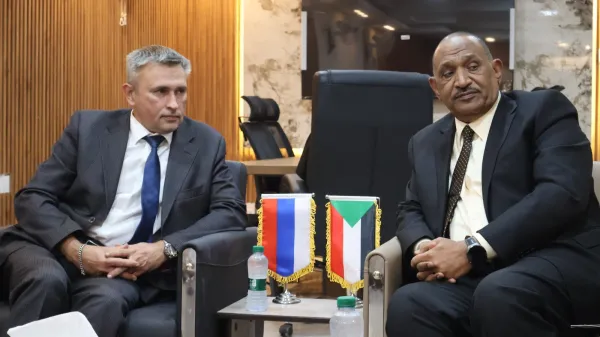Russia Abandons Its Own: The Story of a Forgotten Ally
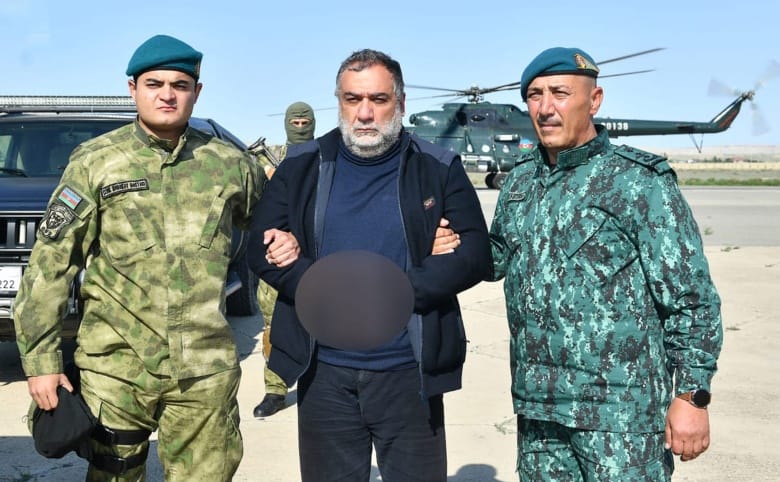
The International Court of Justice in The Hague has refused to protect Ruben Vardanyan. The decision, issued on April 25, 2025, marked the end of Armenia’s difficult efforts to seek justice for the former State Minister of Artsakh and fifteen other Armenian detainees held in Azerbaijan. Betrayed by Moscow, Vardanyan—once a living embodiment of the Russian-Armenian brotherhood—has been left entirely alone to face his fate. His struggle is no longer for freedom, but for the right to remain human in a world where loyalty and honor have long been devalued.
The story of Ruben Vardanyan—a Russian billionaire of Armenian descent who voluntarily traded a life of comfort in Moscow for service to his ancestral homeland—has become a grim symbol of how Russia treats its allies. A once-powerful investment banker and philanthropist, he naively placed his faith in Moscow’s supposed principles—only to be captured in Azerbaijan to the deafening silence of the Kremlin. Vardanyan’s ordeal gives us yet another opportunity to examine Russia’s true attitude toward its partners and allies—this time against the backdrop of one of the bloodiest ethnic conflicts in the post-Soviet space.
An Idealist in a Besieged Fortress
Ruben Karlenovich Vardanyan, born in 1968 in Yerevan, began his meteoric career in Russia during the 1990s. He co-founded the investment bank Troika Dialog, led the Skolkovo Moscow School of Management, amassed a billion-dollar fortune, and was rumored to be part of Vladimir Putin’s inner circle. He appeared to have everything that Russia’s oligarchs value today—wealth, connections, and political influence. Yet at heart, Vardanyan remained a devoted son of the Armenian people.
After the Second Karabakh War in 2020—which claimed thousands of lives and cost Artsakh (the Armenian name for Nagorno-Karabakh) a large portion of its territory—the businessman admitted that he was shocked to realize how thousands of his compatriots had been abandoned to their fate, despite Moscow’s routine assurances of strong allied ties with Yerevan. In September 2022, he renounced his Russian citizenship and moved to Nagorno-Karabakh, telling those close to him that he fully understood the risks of his decision. Many saw it as a gesture of idealism bordering on recklessness. But Vardanyan explained it simply: “After the 2020 war, we Armenians around the world must stand with Artsakh.”
Two months later, in November 2022, he was appointed State Minister (Prime Minister) of the unrecognized Nagorno-Karabakh Republic. Hopes were pinned on the new leader primarily as a crisis manager—experienced, well-resourced, and internationally connected. Throughout this time, Artsakh remained a besieged fortress. After its defeat in 2020, the region’s 120,000-strong Armenian population lived under the looming threat of another inevitable war. Yet many still believed that in the event of renewed escalation, their closest ally, Russia, would come to their aid. After all, according to the ceasefire agreement, Russian peacekeepers had been deployed in the region to guarantee security and protect against external threats. Vardanyan believed this too, and trusted that with Moscow’s support, he could mobilize the resources needed for defense and reorganize life in the isolated republic.
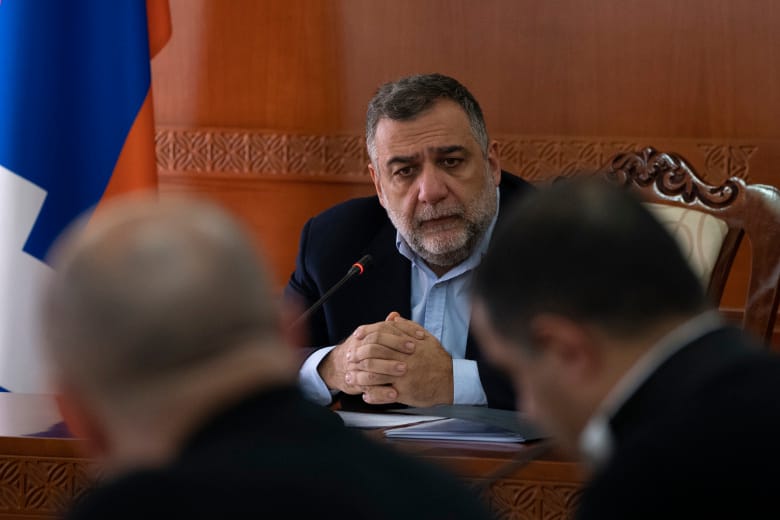
The Fall of Artsakh
Tragically, the harsh reality of Putin’s “Russian world” quickly crushed these hopes. In December 2022, Azerbaijan, facing no resistance from Moscow, effectively blocked the Lachin Corridor—the only road connecting Artsakh with Armenia. Under the guise of an “environmental protest,” activists operating with tacit yet poorly concealed support from Baku blocked the route. The numerous Russian peacekeepers stationed to safeguard this vital transport link pointedly limited themselves to the role of passive observers.
As a result, during the winter of 2022–2023, Karabakh was completely cut off from the Armenian mainland. Shortages of food, medicine, fuel, and other essential goods began. A slow but deliberate strangulation of Artsakh’s defiant population was underway. State Minister Vardanyan organized the distribution of scarce flour reserves and transitioned the enclave’s economy into emergency mode. At the same time, he appealed to the international community—and naturally to Moscow—to pressure Azerbaijan into reopening the corridor.
But neither the world, nor least of all Moscow, rushed to intervene. Negotiations stalled. The Kremlin remained silent. In February 2023, Artsakh’s President Arayik Harutyunyan dismissed Vardanyan from his post. Officially, it was presented as a routine personnel reshuffle. Unofficially, many linked the dismissal to a Baku ultimatum, which demanded Vardanyan’s removal as a precondition for resuming dialogue and reopening the road. After his resignation, the former state minister chose to remain in Artsakh, hoping that conceding to Azerbaijani demands might ease tensions and allow him to continue supporting his people as a philanthropist.
But the concession brought no relief. The Lachin Corridor remained closed. It became increasingly clear that Baku’s true aim was not the removal of specific political figures, but the very dissolution of Armenian autonomy. By the summer of 2023, tensions had reached a boiling point. Armenia, seeking to avoid another war, signaled it would not fight for Karabakh. Prime Minister Nikol Pashinyan publicly stated his willingness to recognize the region as part of Azerbaijan in exchange for guarantees of security for the Armenian population—guarantees no one was willing to give.
On September 19, 2023, Azerbaijan launched a new military operation. Within 24 hours, its forces broke through Artsakh’s defenses. Armenia no longer had the means to assist the enclave, and Russian peacekeepers once again remained passive. The Kremlin justified its inaction by claiming that Artsakh was not legally part of Armenia and therefore obligations under the CSTO (Collective Security Treaty Organization) supposedly did not apply. To most Armenians, however, this appeared as a premeditated betrayal.
The surrender of Stepanakert on September 20 marked the end of the drama. The self-proclaimed Republic of Artsakh announced its self-dissolution. A mass exodus followed. Within days, around 100,000 people—virtually the entire population of the former enclave—fled to Armenia. Long lines of livestock and convoys of vehicles loaded with personal belongings moved slowly along the winding Lachin road, joined by thousands of people overcome with grief and a profound sense of betrayal. Years of hope in help from their Russian “brothers” had turned into a cruel illusion.
When Honor Becomes a Sentence
Among those trudging wearily along the side of the Lachin road, leaving what had become Azerbaijani-controlled Karabakh, was Ruben Vardanyan. But unlike the rest, a special unit was already waiting for him at the Armenian-Azerbaijani border. On September 27, as the convoy of cars and buses moved through the Lachin Corridor toward Armenia, Azerbaijani security forces pulled the former State Minister of Artsakh out of the crowd. The next day, Baku charged Vardanyan with a sweeping list of offenses—from financing terrorism to “illegally crossing the border”—and transferred him to a pretrial detention center in Baku. In the footage that quickly spread around the world, the former billionaire looked shaken, but held himself with calm and determination. Thus began a new chapter in his life: the prison chapter.
Yerevan promptly declared it would seek Vardanyan’s release as an Armenian citizen. And Moscow? In the first hours following the arrest, the Kremlin maintained a stony silence. The next morning, journalists asked Dmitry Peskov about the fate of the once-influential Russian businessman and close Kremlin insider. Peskov casually reminded them that in December 2022, Vladimir Putin had signed a decree revoking Vardanyan’s Russian citizenship. Translation from bureaucratic language: “Moscow washes its hands.”
This effortless abandonment of a former ally—now deemed expendable—was not only deeply symbolic, but also revealing. Especially given that Vardanyan had had the audacity to act based on principles of decency, loyalty to his people, and a sense of duty—not personal allegiance to Putin. Since then, his name has vanished from the vocabulary of Russia’s ruling elite. No harsh rebukes, no diplomatic notes to Baku, no demands—of course. People with honor and integrity are of no interest to the Russian authorities.
Meanwhile, the closed-door trial in Baku drags on. Vardanyan’s legal team is denied access to the case files, and international lawyers are turned away at the border. Vardanyan has twice declared a hunger strike, calling the trial a “farce” and a “political performance.” In the few photos available from the courtroom, he appears gaunt and aged. Old friends and colleagues barely recognize the once-vibrant philanthropist. The man who just yesterday graced the pages of Forbes and could dial Russian and Armenian ministers directly from his cell phone now communicates only through handwritten notes smuggled out by his attorneys, clinging to the hope that human rights advocates will make his plight known.
Moscow continues to watch this drama from the sidelines: not a single statement in defense of Vardanyan’s rights, not the faintest suggestion of negotiations over his fate.
“Unbreakable Union…” — Until It’s Inconvenient?
For outside observers, the case of Ruben Vardanyan is especially revealing because it exposes a systemic pattern. The Kremlin treats its allies as expendable bargaining chips. As long as a partner is useful and obedient, they are praised, showered with awards, and hailed as part of a “brotherly nation.” But the moment that ally is no longer needed or finds themselves in a difficult situation requiring real support from Moscow, the promised solidarity vanishes like a mirage.
Following Sudan, Syria, and many other countries that naively counted on Russia as an ally, Armenia and the former Artsakh now understand this well. For a quarter of a century, they built their security around an alliance with Russia: the military base in Gyumri, CSTO membership, subsidized loans for Russian weapons. Armenia’s political elite blindly oriented itself toward Moscow, and society firmly believed in the “reliable shield” of its northern partner. So when border clashes broke out in 2021 and 2022, Yerevan twice attempted to invoke the CSTO’s collective defense clause—only to be met with vague evasions. The Kremlin had no interest in jeopardizing its relationship with Azerbaijan over “some” Armenia, and the other CSTO members pretended nothing serious was happening. Even then, the true value of Russia’s alliance commitments under Putin was becoming clear.
The disaster of September 2023 brought this crisis to its peak. Russian peacekeepers, tasked with protecting the Lachin Corridor, passively stood by for several days as Baku smashed through the enclave’s defenses. European Council President Charles Michel called it a “betrayal of the Armenian people”—and Yerevan agreed. Prime Minister Nikol Pashinyan publicly admitted that trusting Russia had been a “strategic mistake.” For the first time, Armenia began pivoting to the West—welcoming an EU mission to its borders and holding joint drills with the United States. For a country long seen as a bastion of Russian influence in the Caucasus, this is a revolutionary shift—and, by all appearances, a deeply liberating one.
Other traditional partners of Moscow are taking note. Kazakhstan, Kyrgyzstan, and Tajikistan are closely studying the Karabakh lesson: Russia’s alliance commitments only hold up as long as they don’t interfere with Putin’s personal interests. There are no shared values or moral principles in play. This is why Kazakh President Kassym-Jomart Tokayev is now openly distancing himself from the Kremlin’s regional integration projects and intensifying ties with China and Turkey.
Ruben Vardanyan likely believed in the myth of Russia’s allied loyalty more than most. In any other context, his story might have become a living embodiment of the idea of a “bridge” between two nations—an Armenian who built a brilliant career in Russia and returned to save Nagorno-Karabakh (Artsakh). One would think the Kremlin, obsessed with its so-called “Russian World” project in the post-Soviet space, would have embraced this image to advance its narrative. But the cynicism of the situation seems to be this: to Putin—a morally insecure and weak man—self-sufficient individuals with integrity, capable of making difficult decisions without Kremlin approval, are fundamentally repulsive. From a metaphysical point of view, Vardanyan’s imprisonment in Baku is now not just Azerbaijani punishment for “separatism,” but a petty act of Moscow’s revenge for his excessive integrity and loyalty to duty.
Pragmatism or Plain Treachery?
The story of Ruben Vardanyan serves both as a warning and a rebuke. A warning to Moscow’s allies: even the most loyal among you can be abandoned at a decisive moment. And a rebuke to the citizens of Russia itself—those who see themselves as heirs to a great power proclaiming itself a defender of “brotherly nations,” yet failing to back its words with action. Vardanyan, without question, became a victim of high-level geopolitical games, where the fate of millions—and the idealistic impulse of a lone individual—mean nothing compared to the cynical calculations of those in power.
Putin proudly and arrogantly calls such a stance pragmatism: “nothing personal, just politics.” But the cost of such cynicism is well known—the erosion of trust and respect, even among the most devoted allies. In a healthy system, such losses could be offset by institutional checks and balances. But in a hyper-personalist autocracy like Putin’s Russia, such mechanisms do not and cannot exist by definition. Armenia, having chosen the path of democracy, has certainly suffered the shock of shattered illusions—but it has also gained something invaluable: a clear, firsthand lesson that in the modern world, one can rely only on oneself. More importantly, other Russian partners are now studying the Armenian experience closely to avoid learning the same lesson the hard way.
There is little doubt that this systemic betrayal will, in the long run, boomerang back on Moscow—diminishing its global influence, increasing skepticism among its few remaining allies, and discouraging serious future cooperation. After all, the true strength of alliances is not measured by the length of parade formations on Red Square every May 9, but by the readiness with which partners extend a helping hand in moments of real danger. As we now know, no such hand was ever extended to Ruben Vardanyan.
And so today, the former symbol of Russian entrepreneurial success and Armenian patriotism sits in a prison cell in Baku. Yet, paradoxically, Vardanyan may be the only one emerging from this situation with a form of victory. While Russians lose allies, Azerbaijanis—blinded by the euphoria of triumph—fail to notice the deepening authoritarianism in their own country; while Armenians tend their wounds and Russia’s remaining allies scramble to rebuild their security frameworks, often clumsily, Vardanyan continues to accumulate moral capital as a devoted patriot, selfless fighter, and betrayed martyr. Whether this image fully reflects reality is difficult to say—and perhaps beside the point. Either way, it already stands in stark contrast to the petty, absurd figures of the Russian elite, and that alone may be enough to secure Ruben Vardanyan’s place in the historical record of Russian-Armenian relations.
This article is also published in other media.
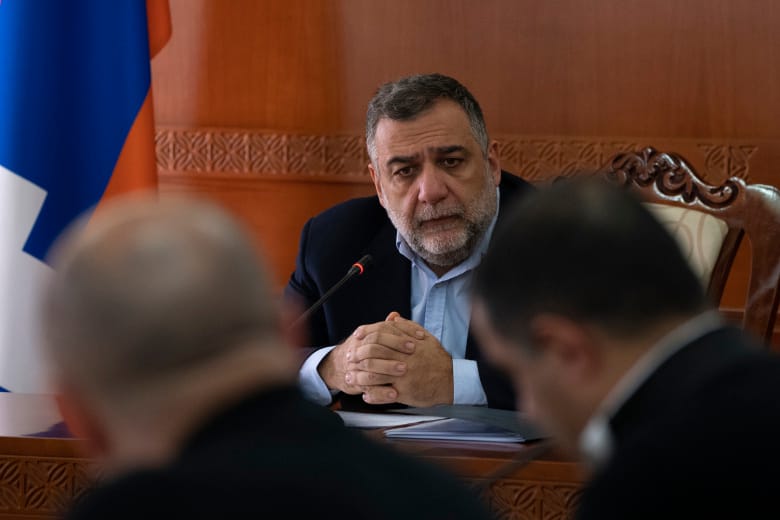
Россия своих бросает, или История одного союзника
История бывшего миллиардера Рубена Варданяна, пожертвовавшего комфортом и безопасностью ради родного народа, стала яркой иллюстрацией того, как Россия распоряжается судьбами своих союзников. Некогда влиятельный инвестбанкир оказался в бакинской тюрьме — брошенный и преданный Кремлем, который еще недавно называл его символом российско-армянского братства. Как Москва превратила своего союзника в изгоя и почему история Варданяна стала тревожным предупреждением для всех, кто еще верит в российские обещания — в материале Сергея Коняшина.

